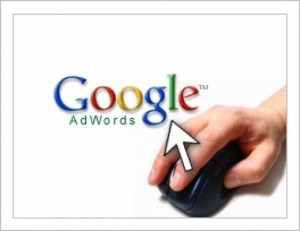UPDATE 10/19: Google has confirmed the rollout of Penguin 3.0
I’ve only got one anecdote to support my suspicion, but a client who was a victim of Negative SEO lost all of their top 10 rankings, and as of today they are all back 100%!
Backstory: This client hired us in December 2013 to figure out why their rankings and organic traffic had dropped overnight on Oct 5, 2013 (date of the last Penguin update). We analyzed their back links using a variety of tools and didn’t take us long to discover they had been a victim of negative SEO. We found over a period of 3 months there were random spammy links added to their site to the tune of about 20,000 links a month! They had never done their own link building nor hired an SEO. Other than these links they had a very small link profile, with just natural links and only a few.
Because the rankings and traffic did drop right in line with the Penguin update, and there were no warnings in Webmaster Tools of a manual penalty, we knew this was an algorithmic penalty associated with these links.
It took us about 3 months to discover and disavow these links, and the reason why is interesting. The links were not showing up on the page every time – they would only occasionally show up upon a refresh. Each refresh of these spam pages was filled with about 100 random links, and each refresh showed a new 100 links. So any link checker would find the links some times, but not other times. We had no choice but to continue to run a link checker, 3 different link checkers as a matter of fact, about 1x a week. Each time we would discover new links that we hadn’t disavowed yet. It was a brilliant sneaky black hat SEO attack.
By around February, we were confident we had disavowed about 90% of the spam links. But no recovery.
As we have all learned since then, a site must wait on Google to update the Penguin algorithm before any changes in rankings or recovery can take place. Unfair? Absolutely. Especially in the case of Negative SEO, which is real and does work. And in this case it took Google over a year to update Penguin. Imagine us reassuring this client that as soon as Google runs their update, their rankings will be back. “When will that be?” “Uh, Google won’t tell anyone, should be within 3 more months”.
In the meantime, we worked hard on content marketing, blogging for the client, getting high quality content published on their site and blog, building out Google Local pages, hoping that when the update hit, their site would be stronger than ever.
SUCCESS! ALL of their previous important keywords are back to the top 10, as of today October 18, 2014. Some of them even higher!
We are torn between being thrilled and being sickened that Google can allow something like this to happen.
 With Google and other search engines increasingly trying to ‘humanize’ their algorithms so that their preference of websites reflects that of their physical users, there has never been a more important time than now for website owners to make sure that the content they use is fully up-to-scratch.
With Google and other search engines increasingly trying to ‘humanize’ their algorithms so that their preference of websites reflects that of their physical users, there has never been a more important time than now for website owners to make sure that the content they use is fully up-to-scratch.
It is no secret to anybody that Google is a bit of a bookworm, with its head of webspam Matt Cutts frequently using his Webmaster Central vlog to point out that, while intelligent use of images, infographics, videos, and audio files helps a website’s ranking, the search engine is still hungriest of all for text.
Content should be viewed as the bricks and mortar of your site. If you view your website in the same way as your house, of course you want it to look pretty and stand out on your street, but there’s no point doing that if it’s made of sponge bricks and uses porridge as mortar. Nobody would want to visit such a house more than once, and it would fail in its purpose. Aesthetic features on your site should be there to accentuate its solid foundation of content – not in place of it.
 Adwords by Google is a proven way to generate traffic, leads, and sales. It is a tool that some marketers are using on a regular basis to drive business goals. While there are a few using this tool to great effect, several more are striking out and in the process, throwing a lot of money out the window. Having success with Adwords calls for you to take the same approach you take to generating visibility for your organic content — optimize. However, the actual steps to optimization are a bit different in this arena.
Adwords by Google is a proven way to generate traffic, leads, and sales. It is a tool that some marketers are using on a regular basis to drive business goals. While there are a few using this tool to great effect, several more are striking out and in the process, throwing a lot of money out the window. Having success with Adwords calls for you to take the same approach you take to generating visibility for your organic content — optimize. However, the actual steps to optimization are a bit different in this arena.
1. Learn to Bid and Budget
Understanding how to bid and budget your funds is crucial to Adwords success. Spending $20 a day may appear to be the way to go for cost-conscious advertisers, but a budget that low will also limit your ability to profit. Likewise, bidding low initially can save you some money, but it might not get you very many clicks. While you don’t want to spend beyond the budget, you also don’t want to limit your potential, so learning how to manage your funds in accordance to the ad platform is key.
January 2013 – Last spring Google posted about Responsive Web Design on their official webmaster central blog and though the flavor of their article was fairly mild, they made it very clear that their “commitment to accessibility” includes a very important message to web designers – “Mark up one set of content, making it viewable on any device.”
I’m sure by now everyone has seen that Google allows you to set up authorship credit for the content that you create. Credit is given by a picture of the author along with a link to the author’s Google Plus page as well as a link that allows you to read more posts by the author.

Setting this up for a blog with only one author that is posting content is pretty straight forward and there is a lot of good information available on how to do it. The problem comes when you have a website or blog that has multiple or more than one authors posting content. Unfortunately the steps that would allow this to work in a single author instance do not work when there are multiple authors and you would end up with the wrong author receiving credit for the content.
After a fair amount of searching I was still not satisfied with any of the answers I had found on how to create the authorship credit when there is more than one author. A lot of the posts that I found contained old and outdated information or steps that are honestly not necessary to this process. Finally after piecing together a bunch of information, I was able to find a solution to my problem that was surprisingly even easier than I had expected! In these next couple sections I will cover how to configure the author credit for both of these scenarios (single author or multiple authors) in WordPress.
 If you work in the field of SEO, you probably understand that Google controls everything. We constantly bend to its will and try to outthink it at every turn. Just as space travel is unpredictable because we haven’t yet experienced much of it, SEO is also a largely new frontier and we seldom know what to expect from our environment. Our environment, of course, is Google. But what if Google didn’t exist? Where would we look for sites? How would we get links? Your brain is probably boiling over with great ideas right now, and that’s the point of this whole thing—if we eliminate Google from the equation entirely, those paths that we come up with are almost completely organic.
If you work in the field of SEO, you probably understand that Google controls everything. We constantly bend to its will and try to outthink it at every turn. Just as space travel is unpredictable because we haven’t yet experienced much of it, SEO is also a largely new frontier and we seldom know what to expect from our environment. Our environment, of course, is Google. But what if Google didn’t exist? Where would we look for sites? How would we get links? Your brain is probably boiling over with great ideas right now, and that’s the point of this whole thing—if we eliminate Google from the equation entirely, those paths that we come up with are almost completely organic.
Google is extremely popular with both the general public and with SEO professionals, but it often locks us inside of a box. At some point we’re not exploring the web on our own, and instead we are relying on an algorithm and some web spiders to explore for us. We can break out of this box and choose our own destination in a natural, organic way. Considering the question “what if Google didn’t exist?” is a great way to answer the question “where can I get more links?”
Playing “what if?” is a fun, but sometimes dangerous, game. It’s easy to get stuck down in the mire of negativity and use “what if?” to fuel your own pessimistic fire. If you use it correctly, however, “what if?” can be a great catalyst for ideas and innovation. For example, think about the popular post apocalypse genre of fiction, where a shovel might become the protagonist’s best weapon, best tool and best friend. Similarly, in a world without Google, a message board buried somewhere inside of a mediocre site with low domain authority might become an excellent research tool. After all, if all of these people are willing to brave an underwhelming site just to talk to each other and share about a topic, that means they’re passionate about it. Passion leads to great info, great leads on new sites and useful links. Google does exist, of course, but thinking outside of that box produces some interesting results.
As the Internet focuses on Social Media, photographs become increasingly important. Facebook, Twitter and Google+ posts share better with great photographs. Unlike video or text, photographs are immediate, beautiful and engaging. Unfortunately there are ownership issues surrounding photographs on social media that every photographer, marketing manager or business should be aware of.
The issues related to copyrights are clearly listed in the Terms of Service agreements on every social media site. Buried in these lengthy, complex agreements are terms that are designed to protect the social media site. Each agreement is a little different and they are updated and changed periodically.
On most Social Media sites when materials with intellectual property rights like photographs are posted the poster is granting a non-exclusive sub-license of the photograph to the social media site. The sub-license is free and it allows other users of the site and the social media site itself to turn around and then use or license the photo for free or for profit. The photographer (or owner of the exclusive license) retains ownership of the photograph but only in a non-excusive capacity once it is posted.
Why do these sub-licenses matter?
From a professional photographer’s perspective by posting a photo on a social media site they are basically removing the ability to ever sell the exclusive right to the photograph down the road. Should the photographer’s work ever become valuable both the social media site and any other entity that has acquired the photograph through the site can use it as they see fit for profit without owing royalties to the photographer. In the case of Google+ this license if forever, called an “irrevocable” license.
Here is the TOS for Google+
“By submitting, posting or displaying the content you give Google a perpetual, irrevocable, worldwide, royalty-free, and non-exclusive license to reproduce, adapt, modify, translate, publish, publicly perform, publicly display and distribute any Content which you submit, post or display on or through, the Services.
You agree that this license includes a right for Google to make such Content available to other companies, organizations or individuals with whom Google has relationships for the provision of syndicated services, and to use such Content in connection with the provision of those services.
You understand that Google, in performing the required technical steps to provide the Services to our users, may (a) transmit or distribute your Content over various public networks and in various media; and (b) make such changes to your Content as are necessary to conform and adapt that Content to the technical requirements of connecting networks, devices, services or media. You agree that this license shall permit Google to take these actions.”
Google+’s user agreement is the most extensive of all the social media sites in that it is irrevocable. The forever nature of the license means that under no circumstances can the poster of the photographer ever recover exclusive rights to the photograph.
News reports like this one from globalpost and businessinsider have been popping up over the last couple days reporting that Google Chrome has become the worlds most used web browser as reported by StatCounter. Immediately when I heard this I thought that there was no way this could be true so I went to check my own Google Analytics Data…
Google Analytics Browser Data on Car Rentals over the past 30 days:
Google Analytics Browser Data on Housewares for the last 30 days:
As you can see, chrome is not even close to catching up to internet explorer in any of these verticals. To make sure I wasn’t going crazy I ran some reports on Travel in Germany, The Middle East and Spain.
 I wanted to publicly thank Bill Slawski from SEO by the Sea I recently hooked up with Bill in a Google Hang out which was hosted by and old mate of mine Dejan from DejanSEO. After listening to him talk about various SEO related topics, I knew I wanted to hear more. I fired off an email offering to take him out to lunch and he responded promptly (maybe he was just hungry?), we sorted out a day and time for me to come down to meet with him.
I wanted to publicly thank Bill Slawski from SEO by the Sea I recently hooked up with Bill in a Google Hang out which was hosted by and old mate of mine Dejan from DejanSEO. After listening to him talk about various SEO related topics, I knew I wanted to hear more. I fired off an email offering to take him out to lunch and he responded promptly (maybe he was just hungry?), we sorted out a day and time for me to come down to meet with him.
It was a pleasure to chat with an industry veteran and share some war stories. I am looking forward to learning from and working with Bill in the future. If you have the opportunity to listen to Bill speak, listen very carefully and take notes :-).